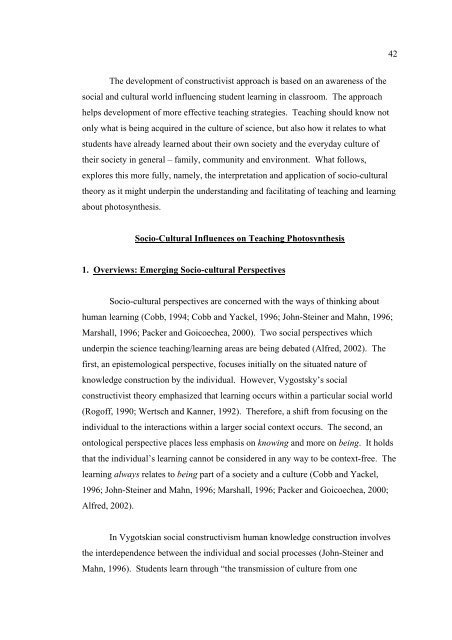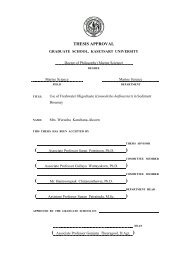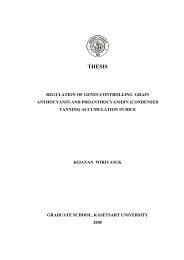an innovative approach
an innovative approach
an innovative approach
Create successful ePaper yourself
Turn your PDF publications into a flip-book with our unique Google optimized e-Paper software.
The development of constructivist <strong>approach</strong> is based on <strong>an</strong> awareness of the<br />
social <strong>an</strong>d cultural world influencing student learning in classroom. The <strong>approach</strong><br />
helps development of more effective teaching strategies. Teaching should know not<br />
only what is being acquired in the culture of science, but also how it relates to what<br />
students have already learned about their own society <strong>an</strong>d the everyday culture of<br />
their society in general – family, community <strong>an</strong>d environment. What follows,<br />
explores this more fully, namely, the interpretation <strong>an</strong>d application of socio-cultural<br />
theory as it might underpin the underst<strong>an</strong>ding <strong>an</strong>d facilitating of teaching <strong>an</strong>d learning<br />
about photosynthesis.<br />
Socio-Cultural Influences on Teaching Photosynthesis<br />
1. Overviews: Emerging Socio-cultural Perspectives<br />
Socio-cultural perspectives are concerned with the ways of thinking about<br />
hum<strong>an</strong> learning (Cobb, 1994; Cobb <strong>an</strong>d Yackel, 1996; John-Steiner <strong>an</strong>d Mahn, 1996;<br />
Marshall, 1996; Packer <strong>an</strong>d Goicoechea, 2000). Two social perspectives which<br />
underpin the science teaching/learning areas are being debated (Alfred, 2002). The<br />
first, <strong>an</strong> epistemological perspective, focuses initially on the situated nature of<br />
knowledge construction by the individual. However, Vygostsky’s social<br />
constructivist theory emphasized that learning occurs within a particular social world<br />
(Rogoff, 1990; Wertsch <strong>an</strong>d K<strong>an</strong>ner, 1992). Therefore, a shift from focusing on the<br />
individual to the interactions within a larger social context occurs. The second, <strong>an</strong><br />
ontological perspective places less emphasis on knowing <strong>an</strong>d more on being. It holds<br />
that the individual’s learning c<strong>an</strong>not be considered in <strong>an</strong>y way to be context-free. The<br />
learning always relates to being part of a society <strong>an</strong>d a culture (Cobb <strong>an</strong>d Yackel,<br />
1996; John-Steiner <strong>an</strong>d Mahn, 1996; Marshall, 1996; Packer <strong>an</strong>d Goicoechea, 2000;<br />
Alfred, 2002).<br />
In Vygotski<strong>an</strong> social constructivism hum<strong>an</strong> knowledge construction involves<br />
the interdependence between the individual <strong>an</strong>d social processes (John-Steiner <strong>an</strong>d<br />
Mahn, 1996). Students learn through “the tr<strong>an</strong>smission of culture from one<br />
42
















